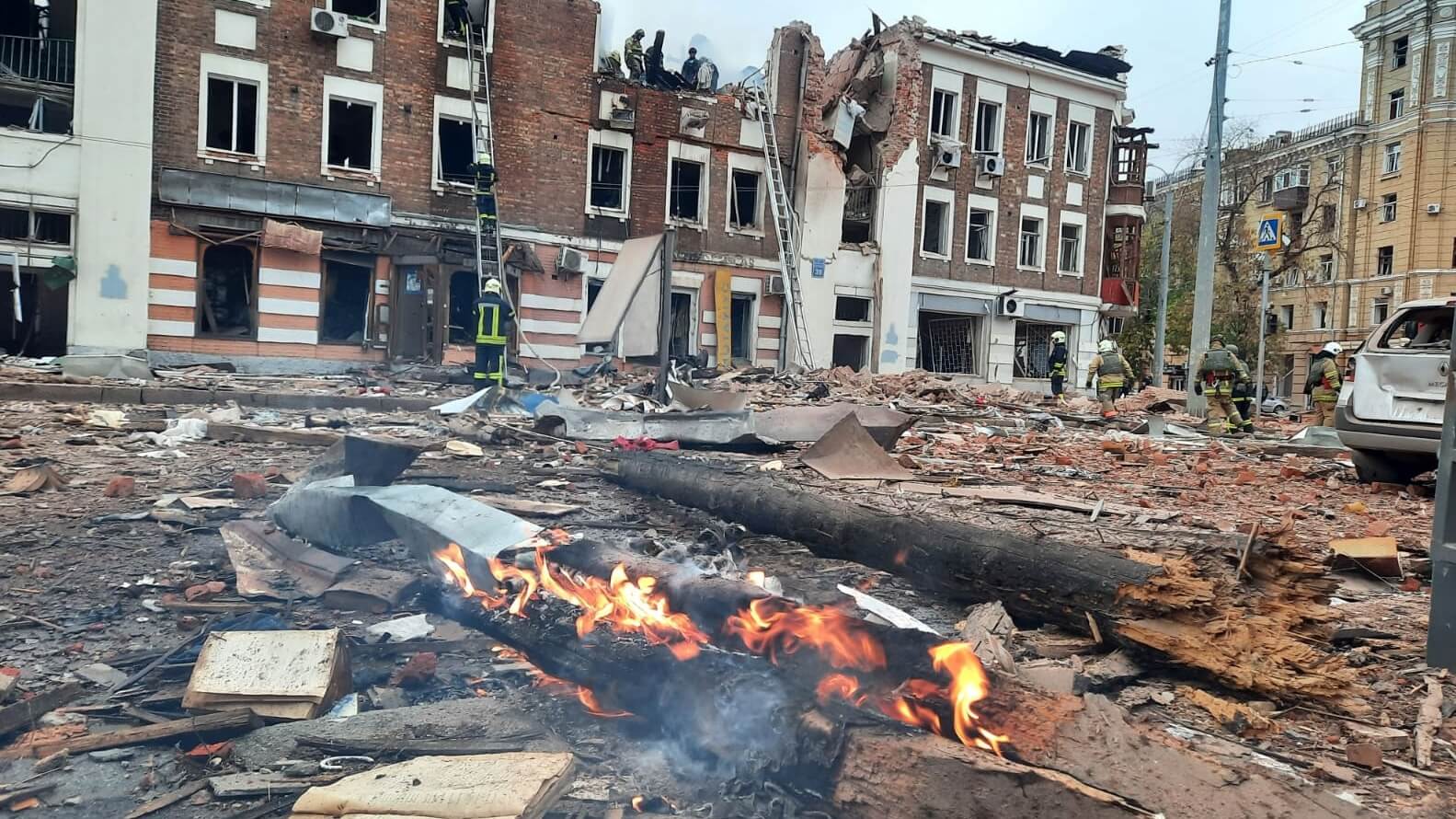Kharkiv: First the bomb hits, then the sirens sound
Estimated reading time: 4 minutes
Blogger Anna Kolomiitseva shares her experience waking up to explosions before the air alarm on October 6, 2023. The city's unique geographical location and absence of new Western air defense systems.

Kharkiv is located 30 km from the Russian border
Kharkiv, located a mere 30 km from the Russian border, once again finds itself vulnerable to increased missile attacks. The short approach time leaves little room for reaction, and the city's modern anti-aircraft defense is lacking. Everyday life is marked by air alerts, a growing sense of fatalism, and an impressive fighting spirit.
The looming threat from Russia has united Kharkiv's inhabitants, leading to widespread donations for the army, the bombed population, and reconstruction efforts. Eastern blogger Anna Kolomiitseva shares her firsthand experience of living amidst these challenges.

October 6, 2023. 6:30 AM
I wake up to the sound of an air alarm on my cell phone in my Kharkiv apartment. The urgency prompts me to check the severity of the threat. Opening one of the local Telegram channels, I discover that two explosions have already occurred in the city, preceding the air alert.
Groggy, I get dressed and step outside to clear my head and dispel the adrenaline. One of the two Iskander rockets that landed in the city center could have struck my house. Despite taking safety precautions, the reality is that in an emergency, survival is uncertain as explosions typically occur before the air alarm activates.
This is the current grim reality in Kharkiv. The city's proximity to the Russian border, just 30 km away, and Belgorod, almost 100 km away, makes the missile approach time too short for effective responses. While many hope for new Western air defense systems, Kharkiv is still without them.

Coping with Everyday Hazards
Kharkiv has become a bastion of fatalism, with residents adopting a resigned attitude of "If it hits me, it hits me." The sirens wail up to ten times a day, but the general sentiment is that the air alert will likely come too late if the situation is genuinely perilous.
Exhausted and sleep-deprived, I grapple with the challenges of being an online translator. However, observing people calmly going about their daily routines gives me newfound strength. Reports on social media reveal that a cafe near the rocket impact site is open, displaying resilience despite broken windows.
From Optimism to Anger
At the outset of the large-scale Russian attack in February 2022, Kharkiv faced enemy troops in immediate suburbs, causing widespread terror with artillery bombardment. Despite the devastation, the Ukrainian army eventually reclaimed the suburbs, and the city experienced a wave of optimism. Reconstruction efforts ensued, with renovated buildings, new public transport, and the opening of cafes and shops.
However, since fall 2023, the Russians have intensified their shelling, deploying newer Iskander missiles and Shahed drones in addition to the older S-300 missiles. The frequency of attacks has increased, with five incidents in December alone, culminating in 20 rockets fired just two days before New Year's Eve. The terror persisted into January 1 and 2, 2024, resulting in over 130 damaged buildings, one fatality, and 62 injuries, including six children.
Kharkiv's residents, lacking modern air defense and situated uniquely geographically, find themselves relying on luck and the strength of the Ukrainian army. The city's struggle for normalcy continues amidst the ongoing threat from missile attacks.
Kharkiv residents assert that they are no longer gripped by fear but by an overwhelming sense of anger, which they channel into acts of generosity. Contributions pour in, with people donating funds to support the army, aid victims of bombings, or replace the hundreds of shattered windows at Kharkiv universities.

Endurance, in this context, becomes a matter of the heart. Living, working, and studying in this city transforms into a labor of love, a seemingly futile effort. Yet, a resounding refrain echoes among the residents: "Kharkiv is reinforced concrete", a phrase referencing the heart of Kharkiv's constructivist architecture, the "House of State Industry" (Derzhprom). This innovative 1920s building stands as a monolithic reinforced concrete structure, its indestructibility symbolizing Kharkiv's unwavering fighting spirit.
Despite this resilience, the undeniable truth remains — to prevent further loss of life and the destruction of historic buildings, an end to Russian missile terrorism is imperative. Sadly, realizing this goal appears to be a distant dream for now.



